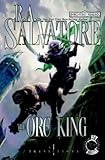Well I'm sure you have all heard about the passage (the second time around) last week of the famous "Bail-Out Plan" for $700 billion. While I'm not for the specific plan that was passed, something needed to be done. So I thought I would discuss some of the issues involved, some repercussions, and (hopefully) add a little transparency to the subject. First off, if you want some light reading and have some spare time, here is a link to a full text of the
"Emergency Economic Stabilization Act of 2008." It's only 110 pages so you should be through it in no time... :)
One ramification of inaction is that many companies use lines of credit to pay employees (in other words, payroll comes from a line of credit). In today's economy and with lender trust drying up, so too are such lines of credit. If those dry up, how will employees be paid? Another problem with lending is many auto-dealerships on the east coast have been closing up shop because they can't sell their cars because they can't make car loans.
"Supporters said the bailout was needed to prevent economic collapse; opponents said it was hasty, ill conceived and risked too much taxpayer money to help Wall Street tycoons, while providing no guarantees of success. The rescue plan allows the Treasury to buy troubled securities from financial firms in an effort to ease a deepening credit crisis that is choking off business and consumer loans, the lifeblood of the economy, and contributing to a string of bank failures." (see
NY Times article).
Basically the main point of the Bill is that the government is going to buy an array of mortgages and securities that are worth nothing and thus clogging the nation's financial system. It puts the U.S. Treasury in charge of said securities/mortgages and leaves much of operations up to the Treasury. As of yesterday, the Treasury had $350 billion immediately available for use in buying up these junk mortgages/securities. The fund that these monies will be put into will be overseen by a bipartisan congressional commission that will receive reports from the Treasury every 30 days. Also, the bill has a stipulation that
protects tax-payers: if after 5 years the government has a net loss, the president will be required to submit a legislative proposal to seek reimbursement from the financial institutions that participated.
Basically the core of the failed Bill presented on Monday by Mr. Paulson remains unscathed and unchanged. They basically just added some fluff to the bill to quell fears. So what else did they add?
1) The FDIC limits on insured money per person, per institution was formerly $100,000. The new Act passed upped that figure to $250,000 per person, per institution
through the end of 2009 at which time it will return to $100,000. This only impacts you if you have that much to deposit into a bank. This was also mainly done to help big savers and older retired people insure their money. Though if it came down to it, they wouldn't be able to cover big bank failures
if they happened. From today's headlines, if WaMu and Wachovia both went under and hadn't been bought by other institutions, the FDIC would have had a hard time insuring those deposits.
2) The Bill gives the SEC the right to suspend -- by rule or order -- mark-to-market accounting under Statement Number 157 of the Financial Accounting Standards Board. Much blame has fallen on accountants and the "Mark-to-Market" accounting rules. The basic premise of "Mark-to-Market," means that at the end of each reporting period, the carrying value of an asset is adjusted to fair-value. What does that mean? you ask? Basically, fair value boils down to this: fair value is the price you could get for something if you had to sell it right now." In other words, the devaluation of your home (if you own one) on the banks books in today's economy is a result of "Mark-to-Market" accounting. Critics say this contributed to the downward spiral of markets. I say this was just the market correcting itself for a huge home-price bubble. Home prices were inflated way to high and the natural thing for a capitalistic economy to do in such a situation is correct itself. Congress trying to stop that by forcing the SEC to change accounting rules is just
price fixing, which is not a good thing. Let the prices come down, if they go too low, people will start buying again (if they can get loans) and the price will fix itself back up. (plus, even if the SEC changes off of Fair Value accounting, it won't matter anyways as we go to an international accounting reporting standard in the next couple years, which uses *gasp*fair value accounting!) (see
this article, and also
this article).
Basically this particular change amounts to this: Give banks a break by letting them value their bad mortgage assets at a price they could fetch later, not now. But that might just postpone the reckoning. The Mark-to-Market rule was implemented to
prevent companies from misleading investors about the true value of their assets. Didn't dishonest investors play a big part in this in the first place? Now we want to help them be more dishonest? What? Investor advocates say scrapping the rule now would encourage exactly the kind of shady accounting that defined the Enron era earlier this decade. "Besides, when the real estate market was soaring a few years ago and mortgage asset values were spiking, no banks complained about having to use mark-to-market accounting," noted Edward Ketz, an associate professor of accounting at Pennsylvania State University.
3)Another part are two tax breaks. Of the two tax measures, one is a package of energy-related tax incentives and the other extends about 30 tax breaks that are set to expire at the end of this year, including a temporary patch that keeps more people from having to pay the alternative minimum tax. One would provide tax incentives for individuals and businesses to save energy, produce alternative energy or mitigate carbon emissions.The other would extend a variety of expiring tax breaks. The most significant of these would prevent millions of middle-income Americans from paying alternative minimum tax for the first time. (
more)
4)It will require the Treasury to modify troubled loans to help American families keep their homes.
5) In order for companies to participate, it limits their tax-benefits and also must limit executive pay (in order to prevent "the golden parachute," or big compensations to failed execs) (
more).
What do you think?
References (in order of use)
-http://www.huffingtonpost.com/2008/09/28/bailout-legislation-full_n_130063.html
-http://www.nytimes.com/2008/10/04/business/economy/04bailout.html?_r=1&adxnnl=1&ref=business&pagewanted=2&adxnnlx=1223117572-uBS+s6E7K4vLFKyvhrBH9w
-http://online.wsj.com/article/SB122304922742602533.html
-http://www.marketwatch.com/news/story/congress-takes-hard-look-mark-to-market/story.aspx?guid={D80D6DE4-793F-4A08-AF1B-620C84ACB42B}
-http://www.sfgate.com/cgi-bin/article.cgi?f=/c/a/2008/10/01/BU77139RDC.DTL
-http://www.rediff.com/money/2008/sep/29bcrisis1.htm
 This show is hilarious. I really love the cynical quips of Dr. House and his attitude towards medicine practice. For those who haven't watched the show it is great stuff. Here are some quotes from the show, enjoy!
This show is hilarious. I really love the cynical quips of Dr. House and his attitude towards medicine practice. For those who haven't watched the show it is great stuff. Here are some quotes from the show, enjoy!










